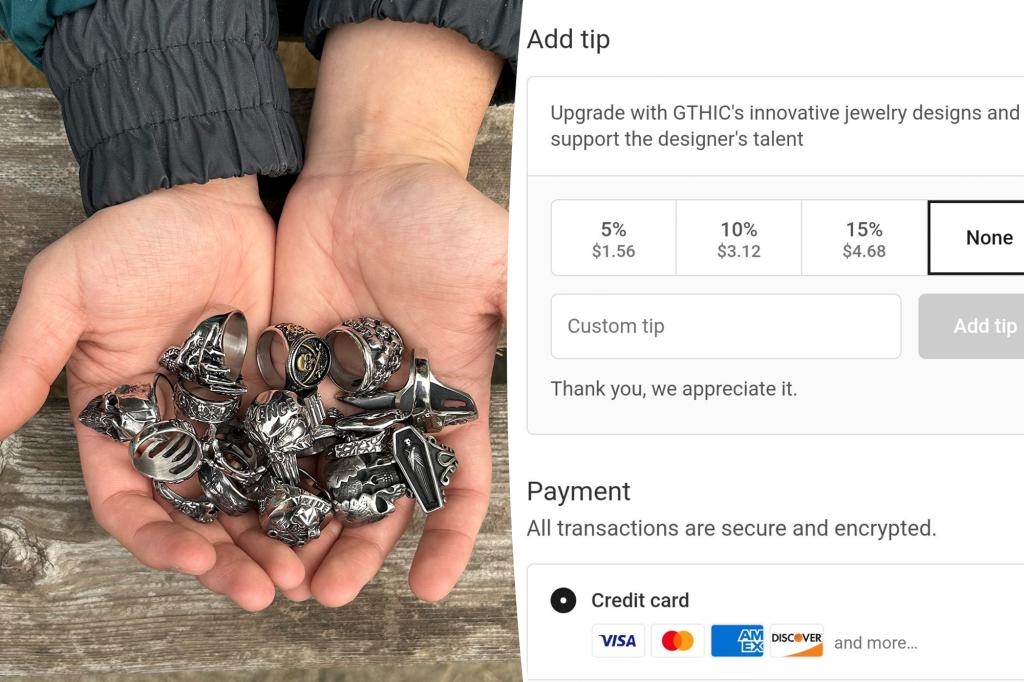Online retailer Gothic recently faced backlash on social media for offering a tipping option on transactions. One Reddit user expressed frustration with the idea of tipping for online purchases, stating, “Now clothing websites want a tip? Get the f–k outta here.” The retailer, known for items like its $38 “tattoos are stupid” t-shirt, included an option to tip up to an extra 15% at checkout to “support the designer’s talent.”
Following the initial Reddit post, others online voiced their disapproval of the tipping option. Some users stated that they would no longer support the retailer and would avoid shopping there in the future. One commenter criticized Gothic, calling the tipping option “a fancy way to say we underpay and overwork our employees.” This incident is just one example of the growing pressure to tip in various situations, even when not directly interacting with service workers.
The idea of tipping for online purchases has sparked controversy, with some consumers viewing it as unnecessary or exploitative. Another Reddit user shared a similar experience with a different online store that also offered a tipping option, leading to laughter and a decision to decline the tip. This trend of adding tipping options to online transactions has been met with mixed reactions, highlighting the ongoing debate over the necessity and fairness of tipping practices in various industries.
The issue of tipping has become a hot topic, with many consumers questioning when and how much to tip in different situations. The pressure to tip has extended beyond traditional service industries and into online retail, causing confusion and frustration among customers. Some view tipping as a way to show appreciation for good service, while others see it as a form of exploitation or unnecessary cost. The debate over tipping practices continues to evolve as more businesses explore the option of including tips in their transactions.
The debate over tipping options in online retail transactions highlights the changing landscape of consumer expectations and attitudes towards tipping. As online shopping becomes increasingly prevalent, the idea of tipping for digital purchases raises questions about fair compensation and customer expectations. The controversy surrounding tipping practices in various industries demonstrates the need for clearer guidelines and transparent communication between businesses and consumers. Ultimately, the decision to tip or not to tip in online transactions remains a personal choice, influenced by individual beliefs and societal norms.
In conclusion, the backlash faced by Gothic and other online retailers for offering tipping options reflects a broader discussion on tipping practices in today’s society. The pressure to tip in various situations, including online shopping, has sparked debate and controversy among consumers. As businesses continue to explore the option of including tipping in transactions, it is essential for both businesses and consumers to consider the implications and ethical considerations of tipping in different contexts. The ongoing debate over tipping practices highlights the need for transparency, communication, and respect for individual preferences and beliefs regarding tipping.


